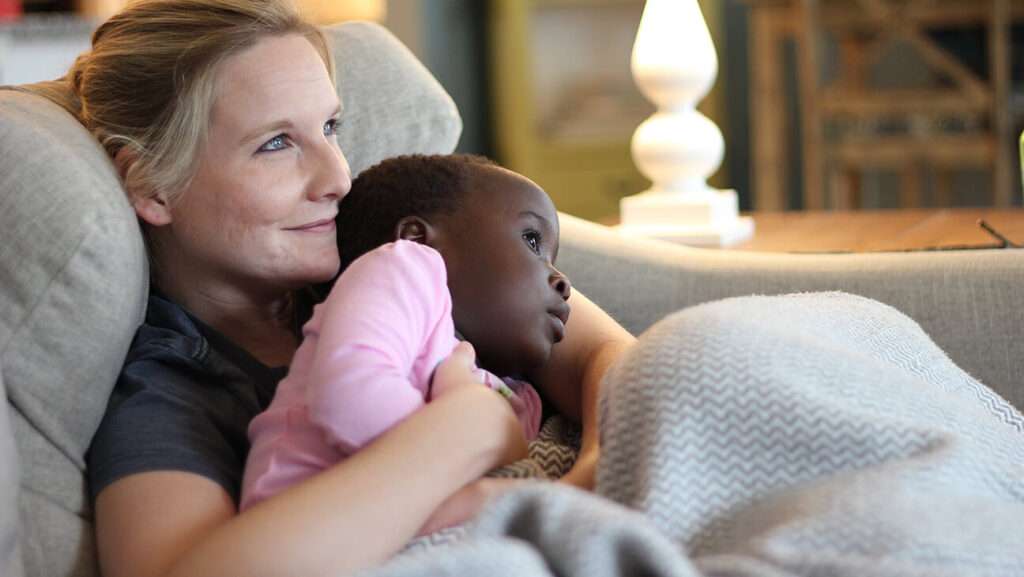If you may worry about when and how to tell your child they were adopted. You may wonder how they will react, what kinds of questions they will have, whether they will want to find their birth parents, and how the disclosure will affect their relationship with you.
Trying to figure out the best way to have this conversation can be stressful. If you’re in this predicament, you’re not alone. It is estimated that 2.3% of all children in the United States have adoptive parents.
These are some strategies that can help you decide when and how to tell your child they were adopted, according to Sabrina Romanoff, PsyD, a clinical psychologist, and professor at Yeshiva University.
Tell Them at an Early Age
There is no set age to have this conversation. However, the timing should factor in when they can understand the meaning of this concept while balancing delivering this information early enough, so they don’t find out accidentally or receive negative messages about being adopted.
While children might not fully understand the concept initially, telling them early opens the door to communication as they get older. It also helps adoptive parents feel more comfortable around this topic.

Explain It in Age-Appropriate Language
Deliver the news in terms your child will understand by using age-appropriate language. As they get older, you might provide more details, but initially when you’re telling your young child they were adopted, you should keep the conversation simple.
Provide clear, straightforward information about their background and where they came from. If there are painful aspects of the adoption story, you may choose to share them with your child when they are older and can understand better.
Maintain a Positive Tone
Be positive and normalize the process of adoption, when explaining to your child how they came to live with you and why they could not stay with their biological parents. Use positive language during this conversation. For example, use the term ‘chose adoption’ instead of ‘put up for adoption.
It’s important to manage your difficulty with these discussions and try not to show it to your child as it might send the message that they cannot explore this aspect of their identity without hurting you, that their adoption is a bad thing, or that discussing it poses a threat to your relationship.
Prepare to Answer Their Questions
Consider the possible questions your child might have about their adoption and prepare answers ahead of time. For example, they might wonder who their birth parents are, where they are, and why they chose adoption.
Reassure Your Child
Reassure your child that you love them and that this is their home. Explain to them that their current home with you will never be taken away from them. Make sure they understand that this situation is not reversible, and they cannot be unadopted as punishment if they misbehave.
Do explain how special they are to you and your excitement at having them come live with you. Do not focus on the negatives.
Validate Their Reactions
Because the conversation is likely unexpected, many children are often calm in the initial conversation but experience delayed reactions once they fully process the information. Not only should you be prepared for this but you should encourage your child to come to you in the future to check in and to bring any other thoughts they have about it to you.
As children grow, their reaction to their adoption likely will adapt as well. Be sure to maintain open communication about this in order to respond to your child’s evolving needs and provide more appropriate information as they get older.
For example, teenagers are more likely to ask more specific questions about their birth parents, and might desire meeting or seeking them out. This is completely normal and should be validated and accepted, unless you believe this contact might put the child’s safety at risk.
Help Them Build Their Identity
Adopted children usually form two identities: one with their adopted family and another as a child who was adopted.
Support your child by creating a safe space for them to understand this experience, find meaning in it, and process the change in their environment, especially if there is a significant change in culture or location.
As an adoptive parent, it can be extremely difficult to explain to your child that they were adopted. Having the conversation with your child when they’re young can help introduce the term “adoption” to their vocabulary, normalize the situation, and help them build positive associations with it.
It’s normal for your child to experience a range of reactions to the situation and have several questions about it over the years. Be prepared to answer their questions and validate their emotional reactions. Above all, reassure them that they are loved and that this is their permanent family and home.




